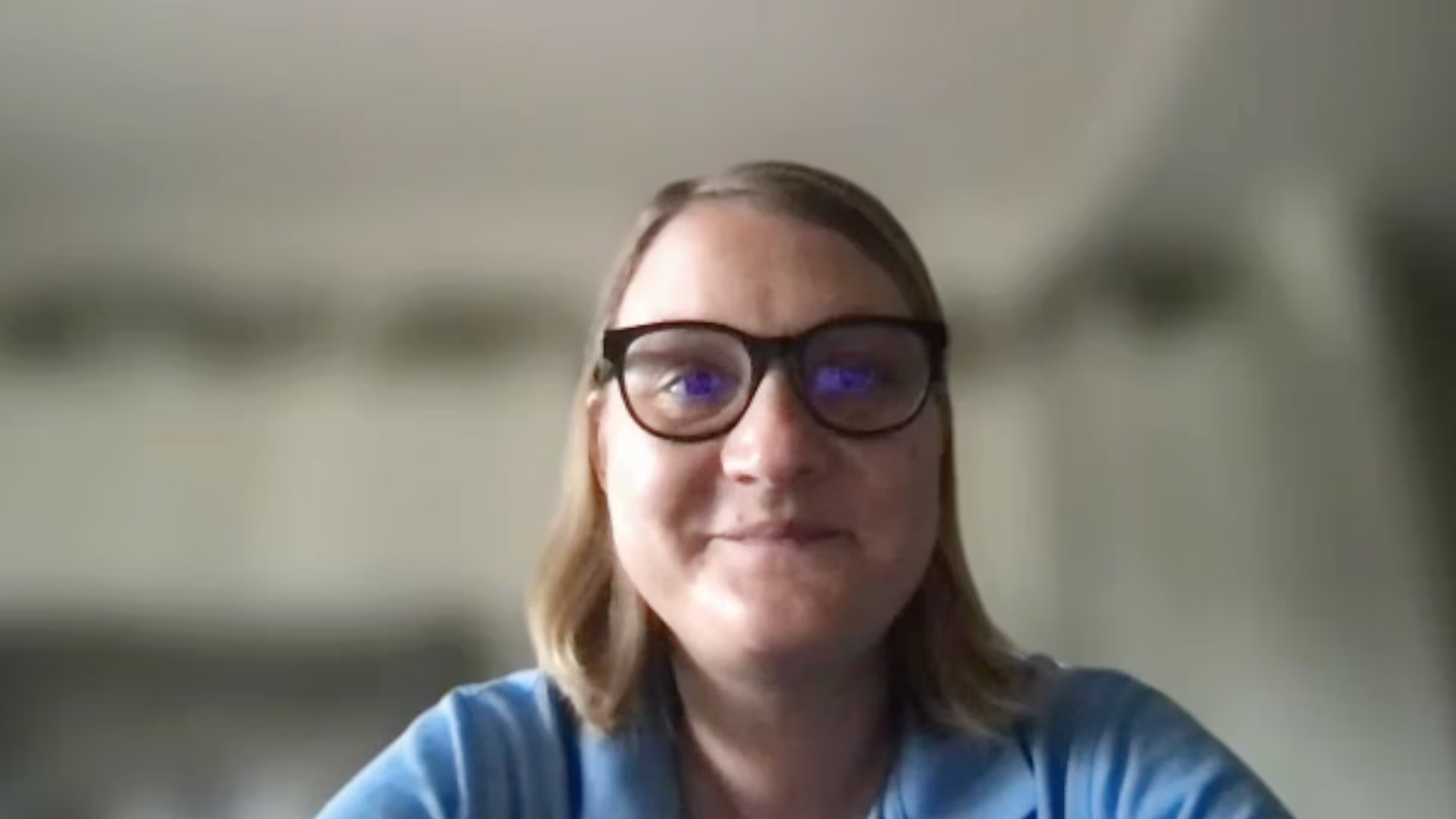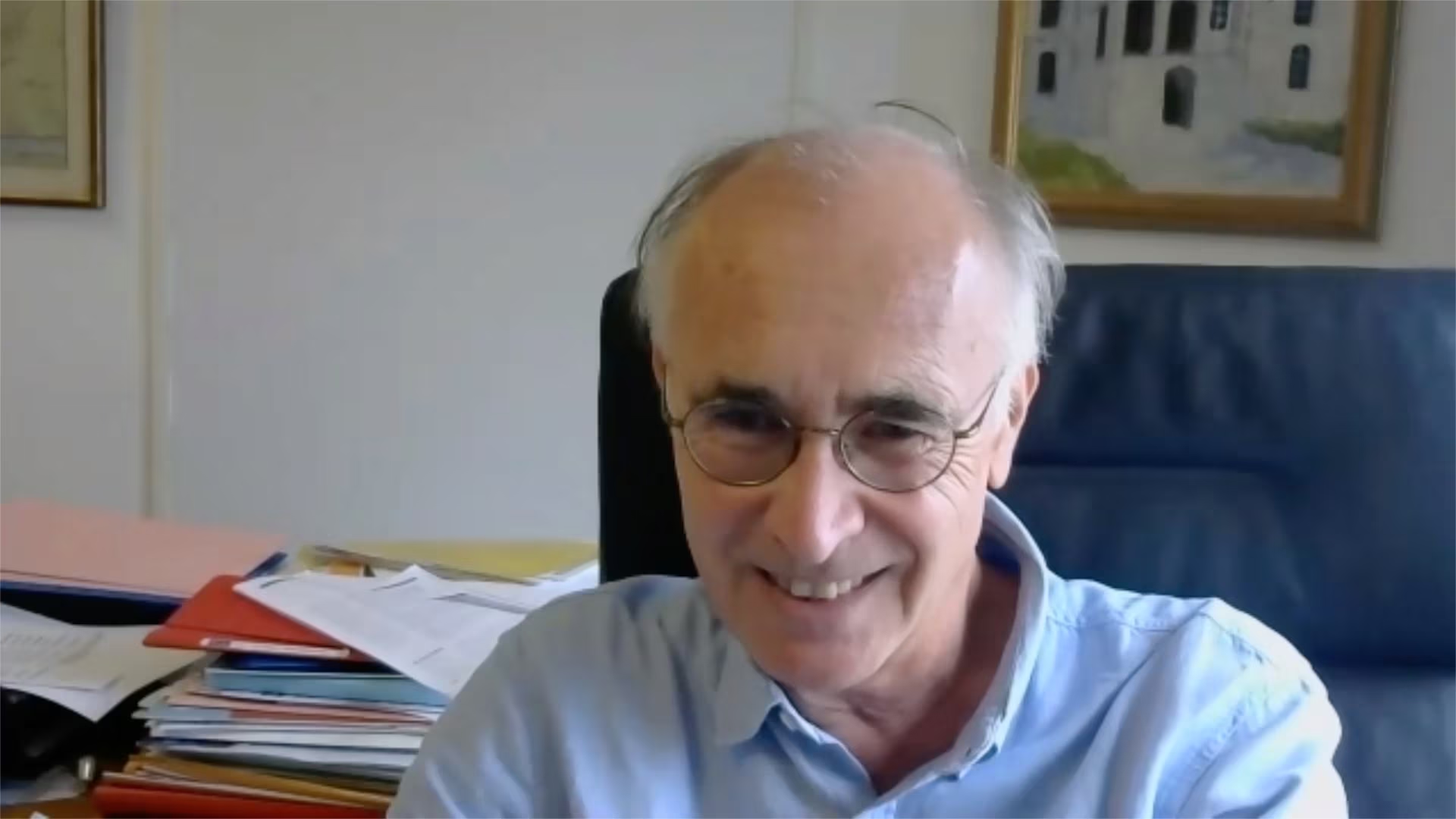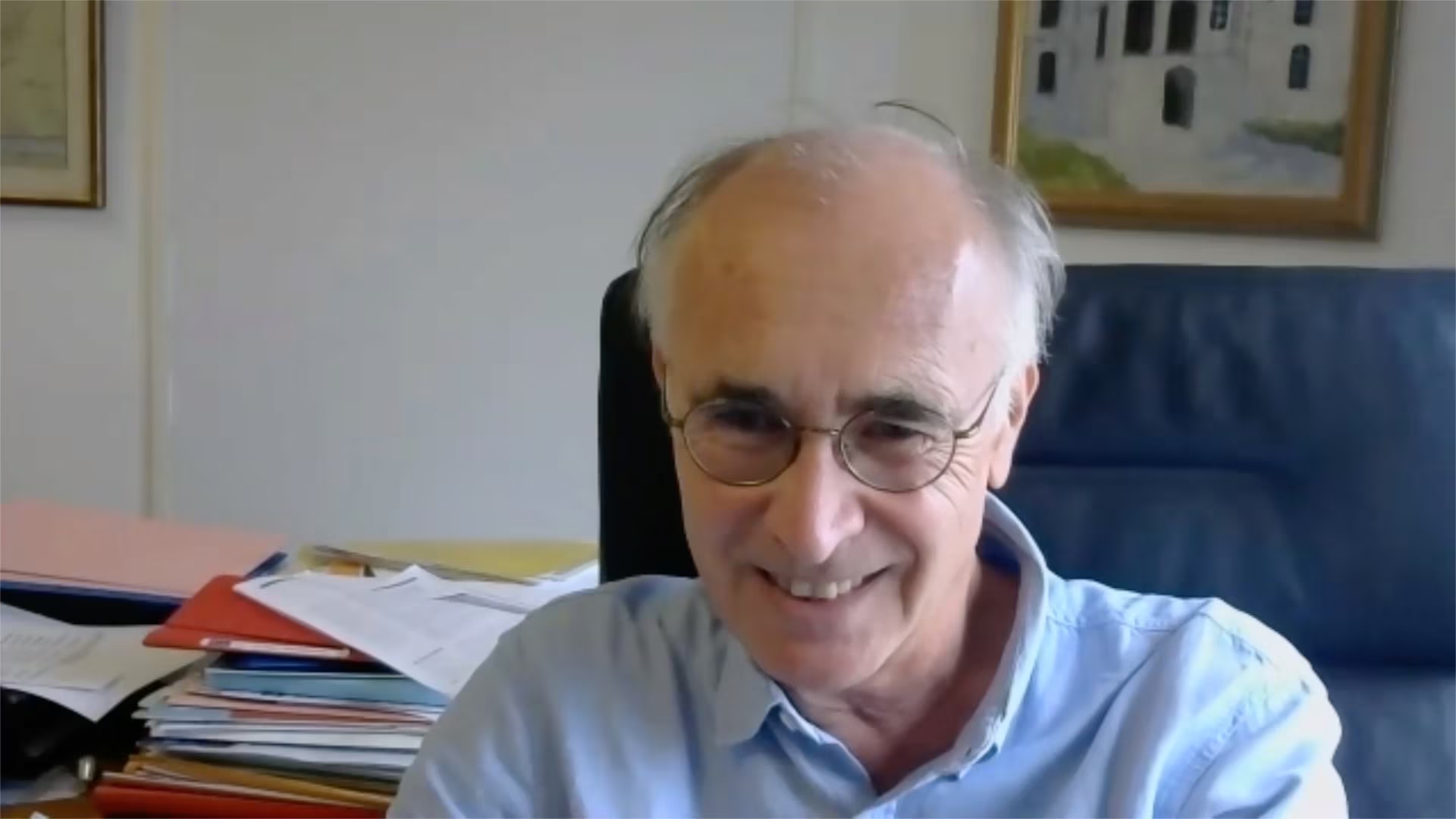Alessia Alunno, EULAR 2023: COVID-19 severity and vaccine breakthrough infections in Sjögren’s syndrome: results from the COVAD study
touchIMMUNOLOGY spoke with editorial board member Alessia Alunno (University of L’Aquila, Italy) to discuss her highlights from the European Alliance of Associations for Rheumatology (EULAR) annual meeting in the field of Sjögren’s syndrome, and summarize the main take-home messages from her presentation.
The abstract ‘COVID-19 severity and vaccine breakthrough infections in Sjögren’s syndrome: results from the COVAD study’ was presented at the European Alliance of Associations for Rheumatology (EULAR), 31 May – 03 June 2023.
Questions
-
What were your highlights and the most prominent data from this year’s EULAR meeting in the field of Sjögren’s Syndrome or autoimmune disorders? (00:13)
-
Please describe the rationale and main objectives of the COVAD study? (01:10)
-
What was the methodology and study design? (02:47)
-
Please summarize the results and main findings (03:38)
-
What conclusions were made, and how might this impact recommendations for patients with Sjögren’s syndrome? (05:10)
Disclosures: Alessia Alunno is a member of the Advisory Board for UCB Pharma and Astra Zeneca.
Support: Interview and filming supported by Touch Medical Media Ltd. Interview conducted by Sophie Nickelson.
Filmed in coverage of the European Alliance of Associations for Rheumatology (EULAR) Annual Meeting
Click here for more content from EULAR.
Transcript
I am Alessia Alunno. I’m a rheumatologist, and I’m currently working at the University of L’Aquila, Italy.
1.What were your highlights and the most prominent data from this year’s EULAR meeting in the field of Sjögren’s Syndrome or autoimmune disorders? (00:13)
It was great to see a lot of research on Sjögren’s Syndrome at the EULAR Conference, and it was also very reassuring to see new data on treatment because, unfortunately, several clinical trials failed in the last decade. To see some positive findings, particularly with regard to patient-reported symptoms, was very interesting. So the future is bright for Sjögren’s Syndrome because we may be closer to a more effective treatment and also we are understanding more and more about the pathogenesis. The progress of technology allowed us to understand a new aspect that were before not clear. And so this necessarily brings new therapeutic targets and so new possible avenues to be followed for therapeutic purposes.
2. Please describe the rationale and main objectives of the COVAD study? (01:10)
The COVID study is an international endeavour, including a group of researchers from all over the world. The main purpose was to gather the experience of people with rheumatic and muscular-skeletal diseases with regard to the broad spectrum of COVID-19. The severity of infections, the adherence to vaccination and any disease-specific feature that could be changed after the infection or after the vaccination. COVID started in 2020, and then we are now at third round of of the questionnaire with different changes over time. And so the idea is to get broader picture on all possible aspects of COVID-19, and ideally conduct not only a huge analysis on old patients with RMDs, but also sub analysis based on individual diseases.
The main rationale behind the data that we collected on Sjögren’s Syndrome relates to the fact that despite the wealth of data on COVID-19 and other autoimmune diseases, the data on Sjögren’s Syndrome are less. And so we wanted to understand in more detail what happens in people with Sjögren’s Syndrome when they get infected with SARS-CoV2 whether there’s any change before or after the vaccination and how they deal with the symptoms, or how the symptoms affect their daily life.
3. What was the methodology and study design? (02:47)
Every person with RMDs can be included in the COVID study, but it’s interesting that we opened it also to patients with non-rheumatic autoimmune diseases and normal subjects. Because this allowed us to have not only a disease group, but also two control groups. And actually, there was no specific eligibility criteria. And the main thing was either being diagnosed with an RMDs or being diagnosed with a non rheumatic autoimmune disease, or even being a normal subjects, and then if people were vaccinated, they were redirected to specific questions, and if they were not vaccinated at the time of survey completion, they were redirected to other sets of questions.
4. Please summarize the results and main findings (03:38)
The main finding of our study on Sjögren’s Syndrome was that the severity of infections was more pronounced before the vaccination, and it was milder after vaccination. So in general, the clinical picture was not often severe, still even if it was contracted before the vaccination, but after vaccination, it was far milder with some symptoms not even appearing at all if the infection was contracted after vaccination. And another important concept is that when comparing patients with Sjögren’s Syndrome, with patients with other autoimmune diseases of, you know, endocrine or neurological or any other autoimmune disease, and normal subjects: we did not observe major differences in terms of the prevalence of infection. So they had the same probability to get infected as people with other diseases and normal subjects. And this, I think, points out a key concept so that people with RMDs not necessarily have a higher risk of contracting the disease, but clearly, if they get infected and they are vaccinated, ask physicians and they can be reassured that the clinical picture will be very, very mild. So the bottom line would be get vaccinated because this will protect you from the severity of SARS-CoV 2 infections.
5. What conclusions were made, and how might this impact recommendations for patients with Sjögren’s syndrome? (05:10)
One important concept to keep in mind with regards to vaccination in people with RMDs and this clearly applies also to people with Sjögren’s Syndrome is that we need to keep in mind the possible effect of immunosuppressive treatments on the safety and efficacy of vaccine. So by now, we have a wealth of data on how immunosuppressants may affect the immune response to vaccination. And we know that there are some drugs, for instance, Rituximab, that may affect the response, so the antibody titers, and so the protective effect of vaccines.
So, people with struggling syndrome should be vaccinated with the only attention should be paid to the ongoing immunosuppressive treatments. And it’s not an absolute contraindication. This is not at all, but it’s a matter of timing. So, vaccinated and with the correct timing based on the ongoing immunosuppressive treatment.







